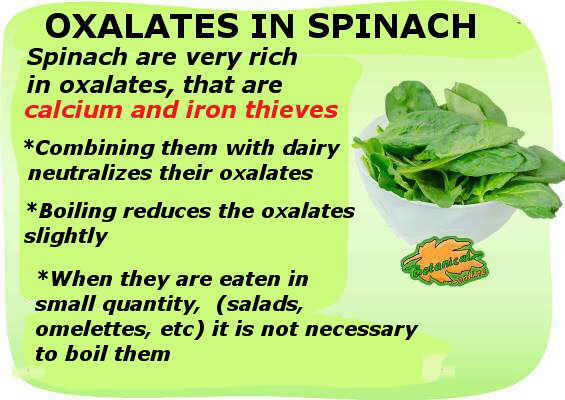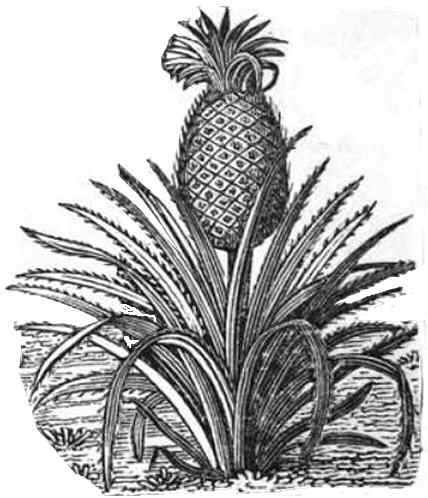Contents
- 1 Why you should boil spinach?
- 2 SPINACH VERY RICH IN OXALATES, CALCIUM AND IRON THIEVES
- 2.1 Do spinach have many oxalates?
- 2.2 Why are oxalates bad?
- 2.3 Problems with eating oxalates
- 2.4 Does eating spinach produce stones in the kidneys?
- 2.5 The formation of stones in the kidneys depends on several factors
- 2.6 HOW TO REDUCE OXALATE CONTENT IN SPINACH
- 2.7 Boiling the spinach to reduce its content in oxalates
- 2.8 Nutrients that are lost when boiling spinach
- 2.9 Is it recommended or not to boil the spinach?
- 2.10 Combine with calcium-rich foods
- 2.11 Who can not eat spinach?
Why you should boil spinach?
SPINACH VERY RICH IN OXALATES, CALCIUM AND IRON THIEVES
Do spinach have many oxalates?
Yes, spinach is one of the foods with the highest content in oxalates. A dish of boiled spinach (150g) provides about 700mg of oxalates, which is a very high amount, compared to most foods in the diet.
The main problem with oxalates is that they steal minerals and prevent their absorption. Therefore, although spinach contains calcium and iron, they are not a good source of these minerals.
 Photo of leaves of fresh spinach Photo of leaves of fresh spinach |
Why are oxalates bad?
Oxalates are substances naturally present in some plant foods that sequester minerals and prevent their absorption, so they are classified as antinutrients.
This is because they become complexed with these minerals preventing their absorption.
Problems with eating oxalates
Eating lots of oxalates can cause irritation of the digestive mucous membranes.
These components are eliminated by faeces and urine. After the ingestion of spinach, the presence of oxalates in the urine (oxaluria) is common. This has also been linked to an increased risk of kidney stones.
Does eating spinach produce stones in the kidneys?
Stones in the kidneys are produced by highly concentrated urine, lack of hydration, acid urine (acidifying diet), urine infections and other diseases and disorders that favor their formation.
Therefore, spinach and foods containing oxalates produce stones in the kidneys only to those people prone to this disorder.
The formation of stones in the kidneys depends on several factors
Feeding with oxalates is not a factor causing stones, since, under normal conditions, the kidneys can remove a certain amount of calcium oxalate from the urine.
| Under normal conditions, people can make use of spinach with assiduity. Eating a serving of about 150 to 200 g of spinach per person poses no risk to health. |
If daily spinach is consumed, it may be advisable to vary the diet with other vegetables (broccoli, cauliflower, arugula, etc.). Since spinach – and chard and beet – are certainly the richest foods in oxalates, so its excessive consumption is inadvisable.

Oxalates in spinach. These components are antinutrients that sequester calcium and iron. Boiling reduces its oxalate content. The combination with dairy neutralizes its oxalates
HOW TO REDUCE OXALATE CONTENT IN SPINACH
Boiling the spinach to reduce its content in oxalates
Many dietitians recommend boiling spinach and other foods rich in oxalates, such as chard, while others usually boil during their usual preparation, such as legumes.
Oxalates remain in the boiled broth that, being rejected, does not prevent the absorption of minerals such as iron or calcium
However, it is worth mentioning that, although boiled spinach is nutritious, it is not always best to boil them.
Nutrients that are lost when boiling spinach
Boiling spinach is not always the best option to consume them, because during this culinary process part of the folic acid (vitamin B9) they contain is spoiled, one of its great virtues.
 Photo of spinach in a market Photo of spinach in a market |
Spinach are the richest food in folic acid. This vitamin is only found in vegetables, being very important because it involves cleaning the blood, improves circulation and improves the health of arteries.
It is also essential during pregnancy.
Is it recommended or not to boil the spinach?
Therefore, it is not always necessary to boil the spinach. You can eat some raw leaves in salads, or add some leaves in a vegetable tortilla (that is, eat a few spinach).
For a whole dish of boiled spinach, it would be better to boil them. What is NOT recommended is to drink the broth from boiling the spinach or re-use it for other preparations.
Combine with calcium-rich foods
Traditionally, Indian cuisine uses the combination of spinach and cheese in their recipes, as in the Palak Paneer dish (spinach with Paneer cheese).
It has been proven that the combination of dairy with spinach is very beneficial because the calcium combines with the oxalates forming a compound that prevents its assimilation. Thus, oxalates are not absorbed and are expelled through the feces without reaching the kidneys.
Who can not eat spinach?
Oxalates should be avoided by people who have kidney disorders or diseases, since eating many oxalates can aggravate it and produce stones.
* Related information:
– Is it good or bad to eat raw spinach?
![]() More information about spinach.
More information about spinach.








